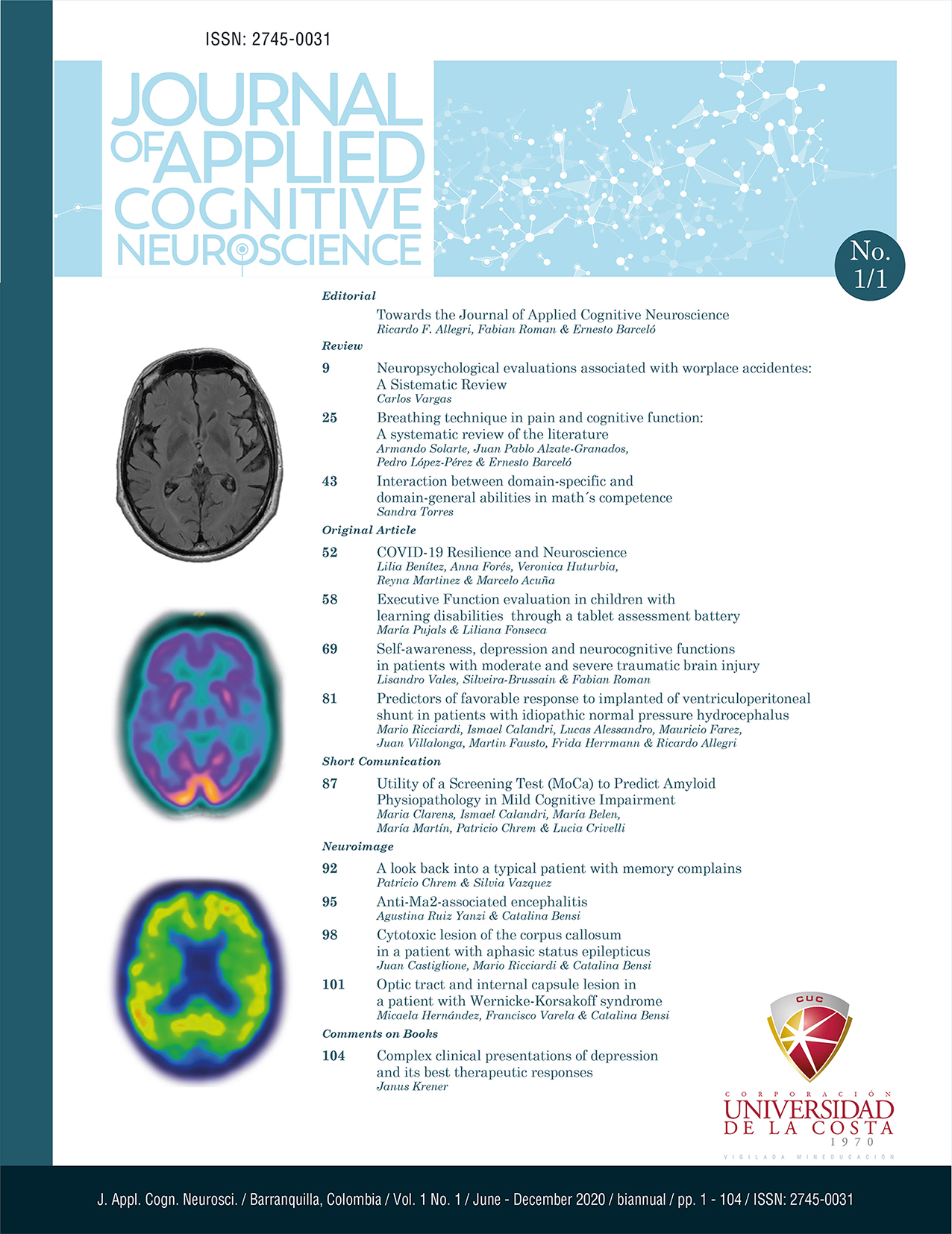Autoconciencia, depresión y funciones neurocognitivas en pacientes con traumatismo encefálico-cráneo moderado y severo
##plugins.themes.bootstrap3.article.main##
Resumen
Introducción: Los Traumatismos Craneanos-Encéfalicos (TCE) constituyen la causa más común de discapacidad en pacientes jóvenes. En los déficits de autoconciencia, los pacientes experimentan dificultades para comprender sus discapacidades. Este es un problema clínico que afecta los procesos de rehabilitación. Materiales y Métodos: Se observó la autoconciencia, funciones neurocognitivas y sintomatología depresiva en 31 pacientes con diagnóstico de TCE moderado o severo, con edades 16 y 45 años. Instrumentos: Índice de Competencia del Paciente, evaluación neurocognitiva y Escala de Depresión Hamilton. Resultados: Se encontraron correlaciones entre autoconciencia y sus dimensiones con habilidades visuoespaciales, funciones ejecutivas (doble tarea e inhibición cognitiva), memoria episódica (aprendizaje audioverbal y cuento corto Montevideo) y sintomatología depresiva. Conclusiones: Los pacientes que han sufrido un TCE moderado o grave pueden tener alteración de la autoconciencia. La autoconciencia es la capacidad de percibirse objetivamente (percibir nuestro propio self), manteniendo al mismo tiempo un sentido de subjetividad, es una función compleja que necesita servirse de funciones ejecutivas y de memoria episódica. La relación entre la autoconciencia interpersonal y sintomatología depresiva, no parece ser concluyente, dicha asociación es más compleja, e involucra otras variables no contempladas en este estudio.
Descargas
##plugins.themes.bootstrap3.article.details##

Esta obra está bajo una licencia internacional Creative Commons Atribución-NoComercial-SinDerivadas 4.0.
Usted es libre de:
1. Compartir - copiar y redistribuir el material en cualquier medio o formato.
2. El licenciante no puede revocar estas libertades siempre que usted respete los términos de la licencia.
Bajo los siguientes términos:
1. Atribución - Usted debe dar el crédito apropiado, proporcionar un enlace a la licencia, e indicar si se hicieron cambios. Puede hacerlo de cualquier manera razonable, pero no de forma que sugiera que el licenciante le respalda a usted o a su uso.
2. NoComercial - No puede utilizar el material con fines comerciales.
3. NoDerivados - Si remezcla, transforma o construye sobre el material, no puede distribuir el material modificado.
4. Sin restricciones adicionales - Usted no puede aplicar términos legales o medidas tecnológicas que restrinjan legalmente a otros de hacer cualquier cosa que la licencia permita.

